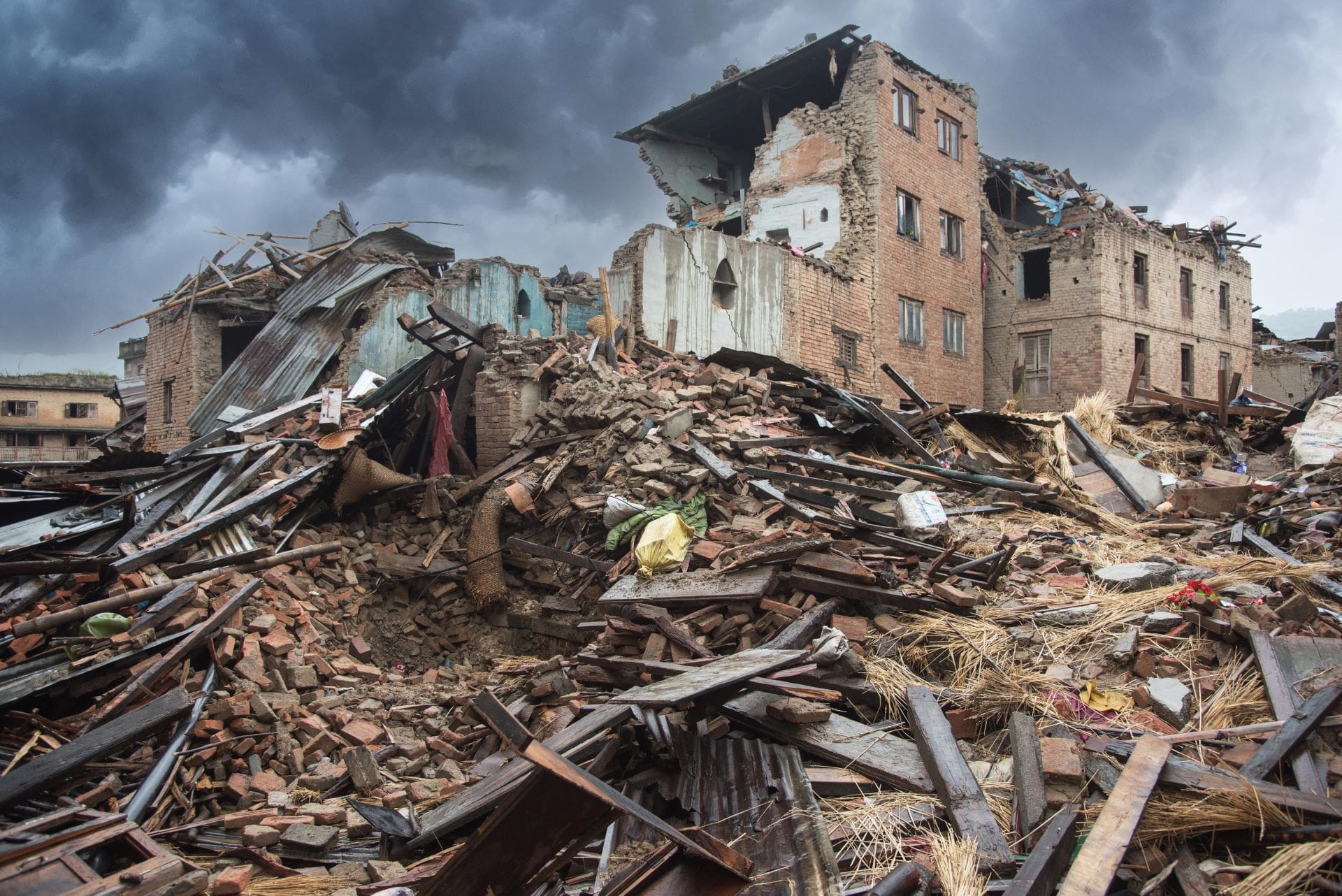
Who we are
Integrating science and end-users needs
for innovative and sustainable mitigation
and adaptation solutions in the Caribbean region.
Project coordinator : Institut de Recherche pour le Développement (IRD), France
Location : Carribean Region
Period : March 2021 – February 2025
Total Budget : 4 992 396 euros
Project priorities
- Access to digital literacy, knowledge and use of emerging technologies.
- Links between R&I skills development and labour market.
- Synergies in the R&I ecosystem (private sector, technology transfer, R&I uptake).
- Local and indigenous knowledge.

Island nations in the Caribbean region share similar physiographic characteristics and are exposed to similar environmental threats, such as rising sea levels, ocean acidification, more severe extreme weather phenomena, coastal erosion, earthquakes, tsunamis and volcanic activity. Limited research and innovation frameworks, as well as limited capacity to practice science and innovation locally, are preventing most Caribbean countries from effectively tackling the effects of natural hazards and climate change, and consequently from conserving the environment and developing their societies sustainably.
Civil society organisations (CSOs), citizens, entrepreneurs, innovators, universities, research centres, regional organisations and public authorities will be supported to collaborate in so called ‘living labs’. This will give them the opportunity to share research knowledge, explore digital and project development/management tools, and develop inclusive, smart and sustainable innovative solutions that will enable Caribbean countries to adapt to the effects of natural hazards and climate change.
University structures rarely possess research laboratories and, therefore, have a limited capacity to develop practical scientific research and innovation (R&I) programmes at tertiary education level. Universities and companies sometimes work in parallel to design innovative solutions to tackle natural hazards and climate change, but there is no collaboration between them.
In addition, their R&I activities rarely involve multi-stakeholder interactions or the exchange of data, models, innovative solutions and students across the region. Enhancing the exchange of knowledge and sharing of solutions between public and private stakeholders in the environmental domain is key if we are to increase the countries’ capabilities to face the challenges posed by natural hazards and climate change. By establishing a regional platform with a focus on innovative research in ‘living labs’ and on solutions to mitigate the effects of natural hazards and climate change, stakeholders along the innovation value chain will be enabled to co-design the solutions of tomorrow, taking advantage of the opportunities offered by digital technologies.
Involving end-users of R&I solutions (products and services) in the ‘living labs’ will potentially increase the efficiency and effectiveness of R&I activities and ensure the development of solutions that are attuned to the local context. Furthermore, establishing partnerships along the innovation value chain that transfer and pool skills between universities and companies – particularly micro, small and mediumsized enterprises (MSMEs) – will strengthen the process of coconstructing innovative, cost effective solutions.
GEOACT is generating and disseminating knowledge to support the development of innovative digital solutions that mitigate the effects of natural hazards and climate change. It also facilitates collaboration between R&I actors along the innovation value chain by strengthening their capacities in project development/management, research valorisation and in the co-design of solutions.
GEOACT provides financial support to projects from Caribbean countries, selected through calls for proposals, that operate at regional level around the themes of natural hazards and climate change and:
- Map R&I stakeholders and diagnose the status of R&I in the region.
- Build a multi-stakeholder community that is aware of the importance of science society collaboration in developing useful innovations.
- Design and implement R&I projects in ‘living labs’ that develop innovative solutions to address the most urgent natural hazard and climate change issues.
- Transfer innovative and sustainable solutions to users in the private sector for positive social and economic benefits, and to public authorities for policy making.
GEOACT provides training to the R&I actors involved in the ‘living labs’ in:
- Information technologies.
- Research valorisation (contracting, intellectual property, technology transfer, etc.).
- Collective R&I intelligence.
- Project development/management.
- Financial sustainability of the ‘living labs’.
- Networking with actors from the public and private sector
Impacts
An inclusive R&I environment across the Caribbean region that is able to deal with the regional effects of natural hazards and climate change.
Outcomes
- R&I stakeholders across the Caribbean region collaborating through a regional network to develop and apply innovative R&I strategies to deal with natural hazard and climate change impacts.
- Increased uptake in the region of innovative, inclusive and sustainable solutions to deal with regional natural hazard and climate change impacts.
- R&I stakeholders able to generate, apply and transfer knowledge to innovate for sustainable development.
Outputs
- A shared vision on the creation of a regional R&I ecosystem on the themes of natural hazard and climate change impacts.
- A committed multi-stakeholder community aware of the importance of science-society collaboration in co-designing useful innovations to tackle natural hazard and climate change impacts.
- Living labs’ established and mobilising actors from research, civil society, industry and public authorities in the development, testing and transfer of innovative and sustainable solutions to tackle regional natural hazard and climate change impacts.
- Skills of actors involved in the ‘living labs’ strengthened in collective intelligence, open innovation and project development/management; development of solutions, tools and services; and transfer of technologies
Island nations in the Caribbean region share similar physiographic characteristics and are exposed to similar environmental threats, such as rising sea levels, ocean acidification, more severe extreme weather phenomena, coastal erosion, earthquakes, tsunamis and volcanic activity. Limited research and innovation frameworks, as well as limited capacity to practice science and innovation locally, are preventing most Caribbean countries from effectively tackling the effects of natural hazards and climate change, and consequently from conserving the environment and developing their societies sustainably.
Civil society organisations (CSOs), citizens, entrepreneurs, innovators, universities, research centres, regional organisations and public authorities will be supported to collaborate in so called ‘living labs’. This will give them the opportunity to share research knowledge, explore digital and project development/management tools, and develop inclusive, smart and sustainable innovative solutions that will enable Caribbean countries to adapt to the effects of natural hazards and climate change.
University structures rarely possess research laboratories and, therefore, have a limited capacity to develop practical scientific research and innovation (R&I) programmes at tertiary education level. Universities and companies sometimes work in parallel to design innovative solutions to tackle natural hazards and climate change, but there is no collaboration between them.
In addition, their R&I activities rarely involve multi-stakeholder interactions or the exchange of data, models, innovative solutions and students across the region. Enhancing the exchange of knowledge and sharing of solutions between public and private stakeholders in the environmental domain is key if we are to increase the countries’ capabilities to face the challenges posed by natural hazards and climate change. By establishing a regional platform with a focus on innovative research in ‘living labs’ and on solutions to mitigate the effects of natural hazards and climate change, stakeholders along the innovation value chain will be enabled to co-design the solutions of tomorrow, taking advantage of the opportunities offered by digital technologies.
Involving end-users of R&I solutions (products and services) in the ‘living labs’ will potentially increase the efficiency and effectiveness of R&I activities and ensure the development of solutions that are attuned to the local context. Furthermore, establishing partnerships along the innovation value chain that transfer and pool skills between universities and companies – particularly micro, small and mediumsized enterprises (MSMEs) – will strengthen the process of coconstructing innovative, cost effective solutions.
GEOACT is generating and disseminating knowledge to support the development of innovative digital solutions that mitigate the effects of natural hazards and climate change. It also facilitates collaboration between R&I actors along the innovation value chain by strengthening their capacities in project development/management, research valorisation and in the co-design of solutions.
GEOACT provides financial support to projects from Caribbean countries, selected through calls for proposals, that operate at regional level around the themes of natural hazards and climate change and:
- Map R&I stakeholders and diagnose the status of R&I in the region.
- Build a multi-stakeholder community that is aware of the importance of science society collaboration in developing useful innovations.
- Design and implement R&I projects in ‘living labs’ that develop innovative solutions to address the most urgent natural hazard and climate change issues.
- Transfer innovative and sustainable solutions to users in the private sector for positive social and economic benefits, and to public authorities for policy making.
GEOACT provides training to the R&I actors involved in the ‘living labs’ in:
- Information technologies.
- Research valorisation (contracting, intellectual property, technology transfer, etc.).
- Collective R&I intelligence.
- Project development/management.
- Financial sustainability of the ‘living labs’.
- Networking with actors from the public and private sector
Impacts
An inclusive R&I environment across the Caribbean region that is able to deal with the regional effects of natural hazards and climate change.
Outcomes
- R&I stakeholders across the Caribbean region collaborating through a regional network to develop and apply innovative R&I strategies to deal with natural hazard and climate change impacts.
- Increased uptake in the region of innovative, inclusive and sustainable solutions to deal with regional natural hazard and climate change impacts.
- R&I stakeholders able to generate, apply and transfer knowledge to innovate for sustainable development.
Outputs
- A shared vision on the creation of a regional R&I ecosystem on the themes of natural hazard and climate change impacts.
- A committed multi-stakeholder community aware of the importance of science-society collaboration in co-designing useful innovations to tackle natural hazard and climate change impacts.
- Living labs’ established and mobilising actors from research, civil society, industry and public authorities in the development, testing and transfer of innovative and sustainable solutions to tackle regional natural hazard and climate change impacts.
- Skills of actors involved in the ‘living labs’ strengthened in collective intelligence, open innovation and project development/management; development of solutions, tools and services; and transfer of technologies
